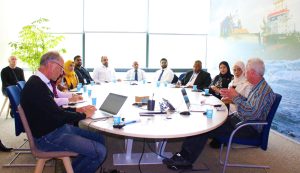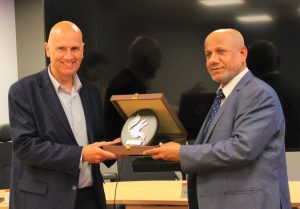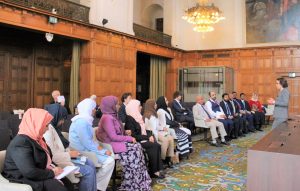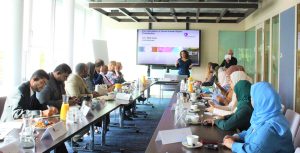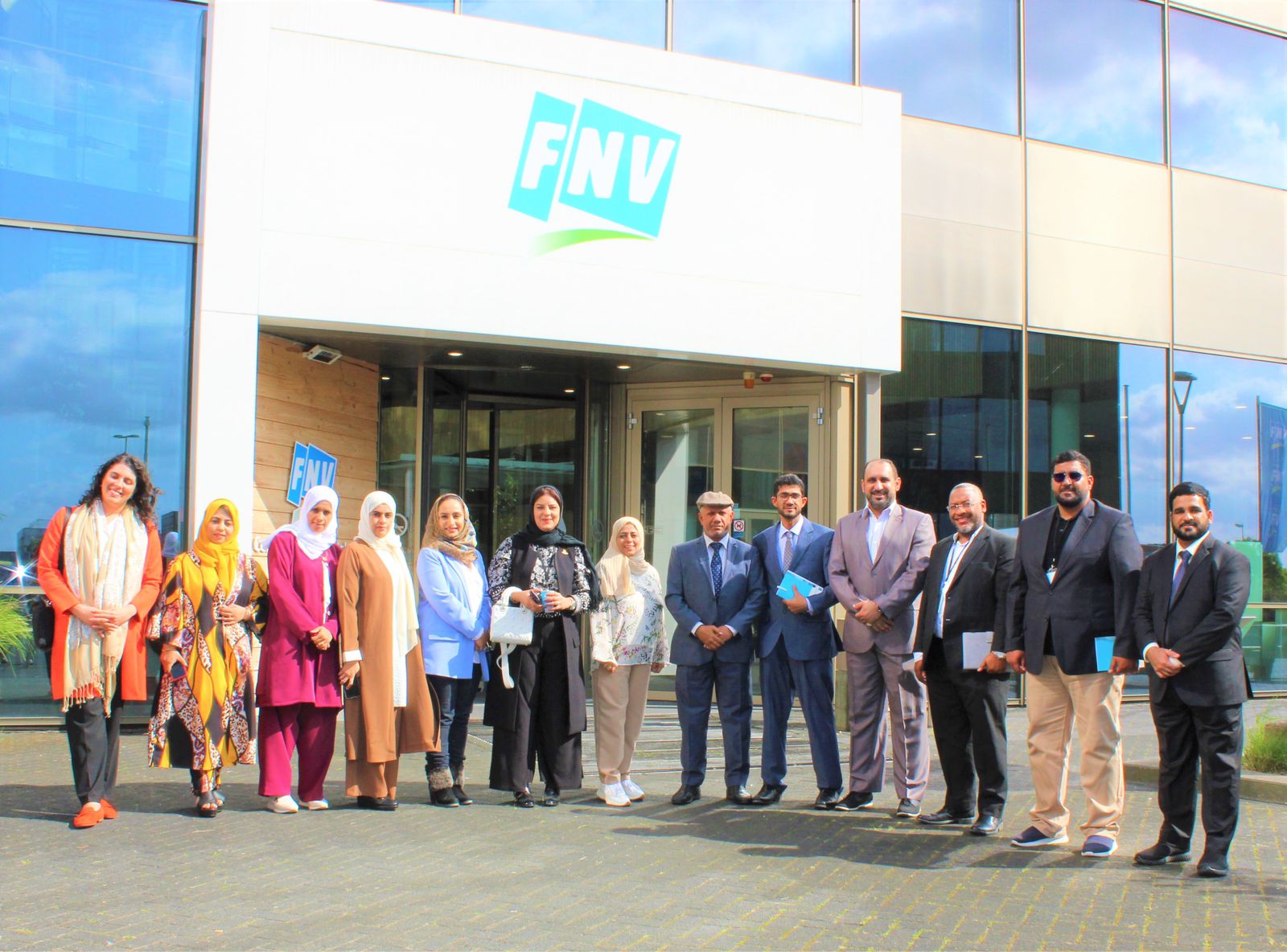A team from the Oman Human Rights Commission and a number of civil society organizations participated in an induction and training program on human rights in The Hague, Kingdom of Netherlands, in cooperation with the Embassy of the Kingdom of Netherlands in the Sultanate of Oman. The team included a number of members and personnel of the Commission and representatives of the Oman Journalists Association, the General Federation of Oman Workers, the Children First Association, and the Association of Children with Disabilities.
The five-day training program conducted by The Hague Academy for Local Governance included educational and training workshops, information exchange sessions, and meetings with human rights stakeholders. Additionally, the program featured field visits to some civil society organizations, the labor union, and the National Human Rights Institution in the Netherlands. The delegation also learned about the experience of the National Ombudsman and international courts.
During the program, participants were introduced to The Hague Academy for Local Governance, its structure, history, and functioning mechanism. They were also informed about international practices of human rights institutions, which included the historical sequence of the beginnings of human rights concepts in the world, the foundations for establishing human rights institutions, the challenges that led to their establishment, and the best international practices for them. Additionally, the program covered the translation of rights into law and practice through many real-life examples and practical experiences implemented in several countries around the world.
Moreover, the program provided participants with an overview of The Hague Academy for Local Governance and its structure, as well as the historical development of human rights concepts and the establishment of human rights institutions. Participants also learned about the role of the Dutch police in maintaining security and upholding human rights principles in their work, including a separate committee to investigate reported violations received by the police throughout different means of communication and in different languages.
The team visited the Netherlands Foundation for Human Rights in the city of Utrecht, during which the participants were introduced to the institution, the date of its establishment and the mechanism of its formation, as well as the many goals under which it works so as to promote and protect human rights. Moreover, its relationship with other institutions concerned with the protection of rights, its funding system and independence were discussed during the visit as well as the challenges it faces in various issues and the annual award it supervises, which is concerned with best practices. In addition, the team visited the Dutch Trade Union Confederation in Utrecht, where it was briefed on the union system and its establishment as well as the mechanism it follows in resolving labor issues.
As part of the program, the delegation met with the officials responsible for the Children’s Ombudsman’s Office and learned about its mandate and the mechanisms it follows to protect and monitor children’s rights. The delegation was informed about the office’s role in providing advice and guidance on child-related issues, conducting specialized research and studies, as well as monitoring and intervening in complaints received. Moreover, the team learned about the efforts of the General Ombudsman of the Kingdom of Netherlands, which is a broader institution in terms of composition, functions and quality of intervention in cases. In addition, the participating team conducted visits to the International Court of Justice and the International Criminal Court.
During the program, Dr. Amal bint Talib Al-Jahuri of the Oman Journalists Association gave a presentation on the association, which addressed the tasks assigned to the association and its main role in protecting press freedoms and preparing the relevant reports. The “Children First” Association presented, presented by Ms. Jukha bint Ali Al Maamari, the experience of the association, its mechanism of work, the achievements made and the projects it works on so as to enhance protection and care of children’s rights.
OHRC presented its experience through Mr. Ahmed bin Nasser Al-Rashdi, Director of the Monitoring and Communications Receipt Department, discussing the Commission ,its establishment, terms of reference and mechanism of work in receiving and monitoring communications, its role in following up and responding to international reports, raising awareness of human rights throughout the society and the publishing of its annual report. The representative of the General Federation of Oman Workers, Khalifa Bin Saif Al Hosni, presented a paper in which he discussed the efforts of the Federation, its competencies and method of work in resolving labor issues.
Dr. Lubna bint Masood Al Kindi, also presented a paper on the Handicapped Children’s Association, its role and the services it provides to handicapped children.
Additionally, the training program aimed to develop awareness and scientific knowledge among the participants through qualification and training, as well as benefiting from the Netherlands’ experiences at the national and international levels. The program also aimed to identify the best practices of national institutions in the Netherlands through cooperation with civil society organizations, and to understand the mechanisms for integrating human rights concepts into the work of law enforcement agencies. Additionally, the program facilitated knowledge exchange with the Dutch National Human Rights Institution and the National Ombudsman’s Office, and identified areas for future cooperation and knowledge exchange projects between organizations in the Netherlands and the Omani Human Rights Commission, particularly regarding the rights of children and inmates through field visits.
Moreover, this program comes within the continuous efforts of the Omani Human Rights Commission to enhance its external role and benefit from the experiences of friendly countries to develop its work and responsibilities in society. The program also seeks to strengthen partnerships between the commission and civil society institutions in sharing responsibilities and promoting joint work.
The participating team was headed by Dr. Ahmed bin Abdullah Al-Sayari, a member of the Commission, and included Mr. Yasser bin Saeed Al-Dhahli, a member of the Commission, a number of employees of the Oman Human Rights Commission as well as representatives of civil society organizations.
